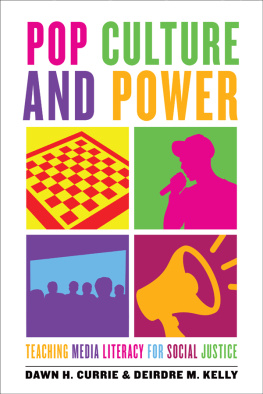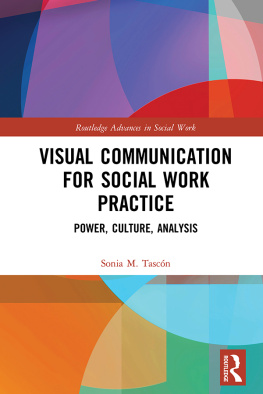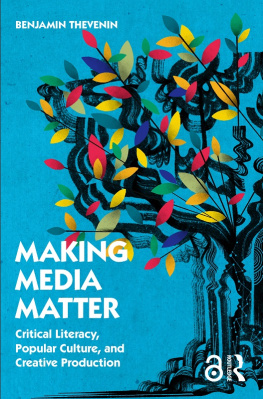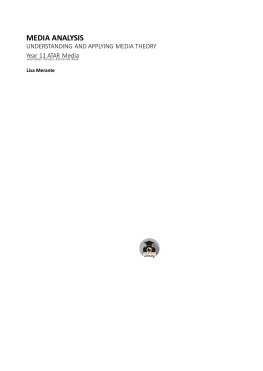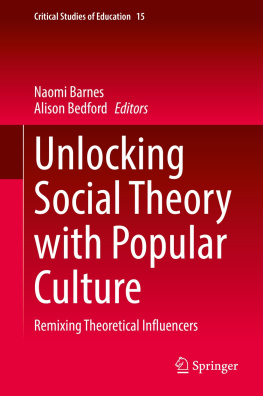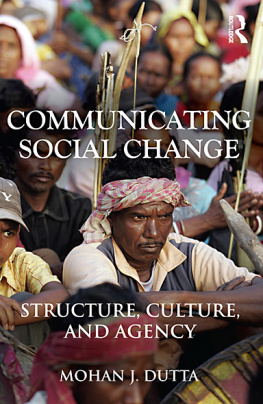Landmarks

POP CULTURE AND POWER
POP CULTURE AND POWER
TEACHING MEDIA LITERACY FOR SOCIAL JUSTICE
DAWN H. CURRIE AND DEIRDRE M. KELLY
UNIVERSITY OF TORONTO PRESS
Toronto Buffalo London
University of Toronto Press 2022
Toronto Buffalo London
utorontopress.com
Printed in the U.S.A.
ISBN 978-1-4875-0759-6 (cloth) ISBN 978-1-4875-3656-5 (EPUB)
ISBN 978-1-4875-3655-8 (PDF)
Library and Archives Canada Cataloguing in Publication
Title: Pop culture and power : teaching media literacy for social justice / Dawn H. Currie and Deirdre M. Kelly.
Names: Currie, Dawn, 1948 author. | Kelly, Deirdre M., author.
Identifiers: Canadiana (print) 20210395834 | Canadiana (ebook) 20210395907 | ISBN 9781487507596 (hardcover) | ISBN 9781487536565 (EPUB) | ISBN 9781487536558 (PDF)
Subjects: LCSH: Social justice Study and teaching. | LCSH: Popular culture Study and teaching. | LCSH: Media literacy Study and teaching. | LCSH: Popular culture Social aspects. | LCSH: Social justice and education. | LCSH: Popular culture in education. | LCSH: Teaching Social aspects.
Classification: LCC LC192.2.C87 2022 | DDC 370.11/5 dc23
We wish to acknowledge the land on which the University of Toronto Press operates. This land is the traditional territory of the Wendat, the Anishnaabeg, the Haudenosaunee, the Mtis, and the Mississaugas of the Credit First Nation.
University of Toronto Press acknowledges the financial support of the Government of Canada, the Canada Council for the Arts, and the Ontario Arts Council, an agency of the Government of Ontario, for its publishing activities.

To teachers who, like our study participants, include media literacy in their teaching for social justice
Contents
The motivation for Pop Culture and Power grew out of our dismay as witnesses to the appropriation and resignification of feminist discourse by the very corporate actors it criticizes. Working from cultural studies, we questioned how critical media literacy, employing pop culture, can challenge the corporate takeover of social life, including those processes intending to promote social change. It is difficult, if not impossible, to individually identify the wide range of colleagues and friends who, over the years, encouraged and joined us in the struggle to teach for social justice in times of educational retrenchment.
We do individually acknowledge and thank our Graduate Research Assistants who undertook field work: Amy Clausen, Paulina Semenec, LJ Slovin, and Zavi Swain. We acknowledge and thank other assistants who worked on our project: Rachel Goossen, Kerria Gray, Bert Lobb, Katherine Lyon-Tanner, Sheila Martineau, Michele Murphy, Megan Ryland, and Kerry Watts. Our study was also made possible by educators who volunteered their time: Dan Blake, Yvette Cassidy, Natalie Chu, Amy Clausen, Yue Lu, Mary, Olivia, Liz Schulz, and Jane Spencer. Of course, our research could not have been undertaken without K-12 student participants, along with their parents and guardians who supported their participation in the study.
As our ideas and analyses took shape, we owe a special thanks to David Beers for patiently reading an early draft of the entire manuscript and offering his editorial advice, as well as to Al at the White Spot where, over a course of years, we met regularly to plan and debrief the research and writing. Al often ushered us to a cozy booth with a window, ignored the overflow of papers, books, and devices as we settled in to work, and sometimes regaled us with stories of his early years working at the restaurant chain.
We thank Nora Kelly and Quinn Kelly. They patiently, and with good humour, indulged the curiosity of two aging feminists about youth culture, and Nora generated ideas for the cover for Pop Culture and Power.
We also acknowledge and thank Meg Patterson, our Acquisition Editor, for supporting our project, and her colleagues at the University of Toronto Press, as well as unknown reviewers. Thanks, also, to Judy Williams for her careful attention to our manuscript during the copy editing process.
We acknowledge the Social Sciences and Humanities Research Council of Canada for financially supporting the research on which this book is based, and the UBC Scholarly Publication Fund for financially supporting publication of Pop Culture and Power.
Finally, we thank our partners, Brian and Dave, for their support, patience, and love.
What I see from kids is a fish in water phenomenon where theyve never known anything outside constant media and advertising bombardment Just imagine! Theyve never known a world where their lives arent constantly mediated.
Liz, director of a media education program in Vancouver, talking with one of the authors
This book explores media as the water in which we all live but which we often fail to question. So normalized are the commercial media of everyday life that they have been dubbed popular culture. But why should we care about what Liz refers to as constant media bombardment, which she worried is displacing face-to-face interaction, even when between friends? How do youth engage with media texts? How do we, as researchers (and thus as experts), understand media as the object of our investigation? As teachers as well as researchers, we ask: How can media literacy prepare media users adults as well as youth for participation in the twenty-first century?
We are not alone in raising these kinds of questions. The context of our research (carried out in 2013) includes the saturation of our lives with new media technologies. Today, most Canadian households own game consoles, laptop and desktop computers, cell phones, MP3 players, and so on; the proliferation of technology since 2000 gives youth (in theory, more than reality)) point out:
How we can enlist and harness these [digital] media to learn to live together in diversity, mutual respect, and difference, addressing complex social, economic, and environmental problems, while building convivial and welcoming, just and life-sustaining communities and societies is the key educational problem facing this generation of young people and their teachers. (p. 252)
The complexity of teaching includes the vast diversity of media that children and youth encounter every day, from flashy billboards to multimodal messaging online. At the same time, the interactive nature of Information and Communication Technologies presents new opportunities for media production. Young people will not be adequately prepared to navigate this landscape if literacy is based on simply reading and writing, no matter how adequate these may have been for previous generations.
Within a growing body of work promoting literacy for the twenty-first century (e.g., Their international collaboration produced what they called a pedagogy of multiliteracies designed to address the multiplicity of communication channels and media, and the increasing salience of cultural and linguistic diversity (1996, p. 63). Their pedagogy reflects changes in the uses, proliferation, and functions of systems of communication. Following current conventions, we refer to new social media, emphasizing the two-sided nature of media engagement; youth are both consumers and producers of media. As argued below, multiliteracies helped displace the view of youth as passive media consumers through an emphasis on media engagement as participation in shaping the future.

